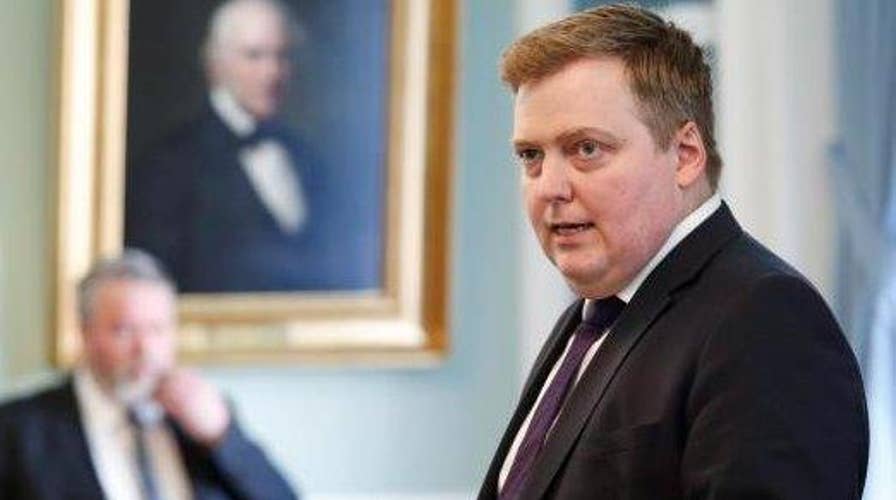Prime minister of Iceland resigns over 'Panama papers'
Scandal surrounding leaked documents from Panamanian law firm claims its first political victim
The prime minister of Iceland resigned Tuesday amid reports that he and his wife set up an offshore company with the help of a Panamanian law firm at the center of a massive tax evasion leak, representing the first world leader to step down in the Panama Papers scandal, a government official told local media.
Prime Minister Sigmundur David Gunnlaugsson had denied doing anything illegal and said he paid all taxes. Opponents argue his company, set up in the British Virgin Islands, represents a severe conflict of interest because it held investments in failed Icelandic banks that his government was responsible for overseeing.
Agriculture Minister Sigurdur Ingi Johannsson told Icelandic broadcaster RUV that Gunnlaugsson would step down as leader of the country's coalition government. Iceland's president Ólafur Ragnar Grímsson has not yet confirmed he has accepted the resignation.
Reports drawn from 11.5 million leaked documents and released over the weekend detailed how and where politicians, businesses and celebrities hide their wealth. The reports by an international coalition of media outlets working with the Washington-based International Consortium of Investigative Journalists are based on documents from the Panama-based law firm Mossack Fonseca, one of the world's biggest creators of shell companies.
A wide array of opposition groups planned protests in Iceland Tuesday evening seeking new elections. Parliament was not in session but deliberations on the crisis were expected to resume later this week.
The Panama Papers also implicate Russian President Vladimir Putin's inner circle, as well as the presidents of Argentina and Ukraine, among others.
The leaked documents allege that Gunnlaugsson and his wife set up a company called Wintris in the British Virgin Islands with the help of the Panamanian law firm.
Earlier Tuesday, Gunnlaugsson sought to dissolve parliament and call an early election, but the president said he wanted to consult with other party leaders before agreeing to end the coalition government between Gunnlaugsson's center-right Progressive Party and the Independence Party.
"I need to determine if there is support for dissolving (parliament) within the ruling coalition and others. The prime minister could not confirm this for me, and therefore I am not prepared at this time to dissolve parliament," Grimsson said. The president planned to meet with Independence Party lawmakers later Tuesday to discuss the crisis.
Gudlaugur Thor Thordarson, chairman of the Independence Party, criticized the prime minister for unilaterally seeking to dissolve parliament.
"It was a total surprise for us to see that. I don't think it was the rational thing to do. I've never seen it done before in Icelandic politics and I hope that I will not see it again," he said.
"I think it's obvious that we cannot tolerate a leadership that is linked to offshore holdings," Arni Pall Arnason, leader of the opposition Social Democratic Alliance, responded. "Iceland cannot be the only western European democratic country with a political leadership in that position."
Iceland, a volcanic island nation with a population of 330,000, was rocked by a prolonged financial crisis when its main commercial banks collapsed within a week of one another in 2008.
Since then Icelanders have weathered a recession and been subjected to tough capital controls -- another reason the prime minister's offshore holdings rankle many.
Wide protests helped bring down the government at that time, and opposition leaders believe similar tactics will topple Gunnlaugsson now and lead to a new election.
The Associated Press contributed to this report.

